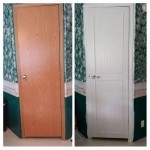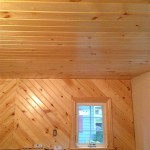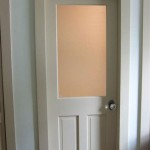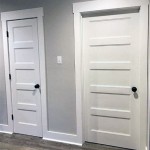Interior doors are an important part of any home or business, and choosing the right door material can make a huge difference in aesthetic appeal and functionality. Glass and wood are two popular options that offer a range of benefits, including increased light and ventilation, sound insulation, and security. In this article, we’ll take a look at the advantages and disadvantages of glass and wood interior doors, so you can make an informed decision when it comes to choosing the right door material.
Advantages of Glass Interior Doors
Glass interior doors are a great way to add natural light to any room in your home. They can be used to separate rooms, such as a living room and dining room, or to create a hallway. Glass doors also offer a great way to open up a room and make it feel larger. In addition, glass doors can be used to create an attractive feature wall that can be used to showcase art or photographs.
Glass doors also provide excellent sound insulation, making them ideal for busy households or businesses. When closed, glass doors create an effective barrier that helps to reduce noise from outside or between rooms. This can be beneficial for both residential and commercial spaces.
Disadvantages of Glass Interior Doors
One of the biggest drawbacks to using glass interior doors is the lack of privacy they provide. In high-traffic areas, glass doors can also be prone to fingerprints and smudges, which can be difficult to keep clean. In addition, glass doors can be more expensive than other door materials and require more maintenance.
Glass doors are also not very secure, as they can be easily broken or shattered. If security is a concern, you may want to consider other door materials. Lastly, glass doors can be more prone to condensation and fogging, which can be difficult to clean and can also lead to mold growth.
Advantages of Wood Interior Doors
Wood interior doors are a popular choice for many homes and businesses. Wood doors are available in a range of styles and can be customized to match the design of any room. Wood doors are also more durable than glass doors, making them a great choice for high-traffic areas. In addition, wood doors offer excellent sound insulation, so they can be used to reduce noise from outside or between rooms.
Wood doors are also usually more secure than glass doors, and they are available in a range of finishes to complement any décor. Wood doors are also relatively easy to maintain and can last for many years with proper care.
Disadvantages of Wood Interior Doors
One of the main drawbacks of wood interior doors is their cost. Wood doors tend to be more expensive than other door materials, and they may require more maintenance over time. In addition, wood doors can be prone to warping or splitting, particularly in humid climates. Lastly, wood doors can be more difficult to install than glass doors.














Related Posts








